
San Sebastián: The Jewel of Spain's Northern Coast
San Sebastián, or Donostia in Basque, is a captivating coastal city in Spain's Basque Country. Known for its stunning beaches, vibrant cultural scene, and world-renowned cuisine, this city offers a unique blend of natural beauty and urban sophistication. La Concha Beach, often cited as one of the best urban beaches in Europe, is a must-visit. Its golden sands and crystal-clear waters provide a perfect setting for sunbathing, swimming, or simply taking a leisurely stroll along the promenade. For a more secluded experience, head to the adjacent Ondarreta Beach or the surfer's paradise, Zurriola Beach. San Sebastián is also a food lover's haven. The city boasts more Michelin stars per capita than anywhere else in the world. Wander through the Old Town (Parte Vieja) and you'll find countless pintxo bars, where you can sample an array of these delicious Basque tapas. Be sure to visit the local markets, such as La Bretxa, to experience the freshest local produce. Cultural enthusiasts will not be disappointed. The city hosts numerous festivals throughout the year, including the famous San Sebastián International Film Festival and the Jazzaldia Jazz Festival. The Kursaal Congress Centre and Auditorium, an architectural marvel, is a hub for these events and offers stunning views of the sea. For those seeking adventure, a hike up Monte Urgull or Monte Igueldo provides panoramic views of the city and its surroundings. Don't miss the historic Castillo de la Mota on Monte Urgull or the funicular ride up Monte Igueldo to experience a charming amusement park with breathtaking vistas. In San Sebastián, every corner holds a story, every meal is a feast, and every view is a postcard. It's a city that invites you to slow down, savor each moment, and immerse yourself in its rich cultural tapestry.
Local tips in San Sebastián
- Visit La Concha Beach early in the morning to avoid crowds and enjoy the serene beauty.
- Try pintxos at Bar Nestor or Gandarias in the Old Town for an authentic local experience.
- Purchase a San Sebastián Card for discounts on public transportation and entrance fees to various attractions.
- Attend the San Sebastián International Film Festival if visiting in September for a chance to see world premieres and celebrities.
- Take the funicular to Monte Igueldo for the best panoramic views and a unique amusement park experience.
- Explore the city by bike as there are many dedicated bike lanes and rental options available.
- Learn some basic Basque phrases; locals appreciate the effort and it enhances your cultural experience.
Neighbourhoods in San Sebastián
San Sebastián: The Jewel of Spain's Northern Coast
San Sebastián, or Donostia in Basque, is a captivating coastal city in Spain's Basque Country. Known for its stunning beaches, vibrant cultural scene, and world-renowned cuisine, this city offers a unique blend of natural beauty and urban sophistication. La Concha Beach, often cited as one of the best urban beaches in Europe, is a must-visit. Its golden sands and crystal-clear waters provide a perfect setting for sunbathing, swimming, or simply taking a leisurely stroll along the promenade. For a more secluded experience, head to the adjacent Ondarreta Beach or the surfer's paradise, Zurriola Beach. San Sebastián is also a food lover's haven. The city boasts more Michelin stars per capita than anywhere else in the world. Wander through the Old Town (Parte Vieja) and you'll find countless pintxo bars, where you can sample an array of these delicious Basque tapas. Be sure to visit the local markets, such as La Bretxa, to experience the freshest local produce. Cultural enthusiasts will not be disappointed. The city hosts numerous festivals throughout the year, including the famous San Sebastián International Film Festival and the Jazzaldia Jazz Festival. The Kursaal Congress Centre and Auditorium, an architectural marvel, is a hub for these events and offers stunning views of the sea. For those seeking adventure, a hike up Monte Urgull or Monte Igueldo provides panoramic views of the city and its surroundings. Don't miss the historic Castillo de la Mota on Monte Urgull or the funicular ride up Monte Igueldo to experience a charming amusement park with breathtaking vistas. In San Sebastián, every corner holds a story, every meal is a feast, and every view is a postcard. It's a city that invites you to slow down, savor each moment, and immerse yourself in its rich cultural tapestry.
When is the best time to go to San Sebastián?
Iconic landmarks you can’t miss
Alderdi Eder parkea
Immerse yourself in the natural beauty of Alderdi Eder Park, a tranquil urban oasis in the heart of Donostia-San Sebastián's vibrant landscape.
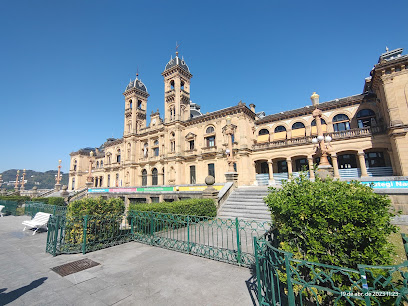
Comb of the Wind (Eduardo Chillida, 1976)
Experience the breathtaking Comb of the Wind, a stunning sculpture by Eduardo Chillida, where art meets the spectacular Basque coastline.
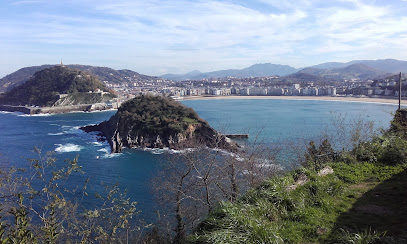
Gipuzkoa Plaza
Discover the serene beauty and cultural richness of Gipuzkoa Plaza, a picturesque park in the heart of Donostia-San Sebastián.
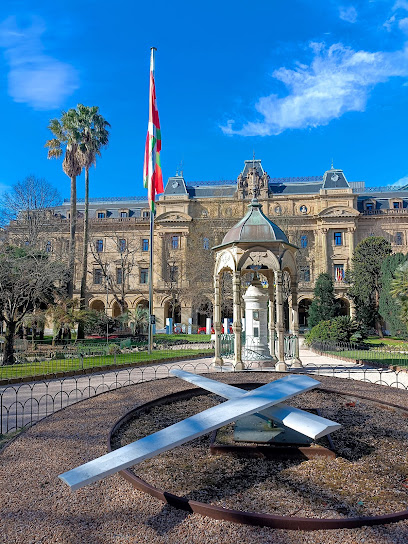
Miramar Jauregia
Discover the enchanting beauty and historical significance of Miramar Jauregia, a royal retreat with stunning views and lush gardens in Donostia-San Sebastián.
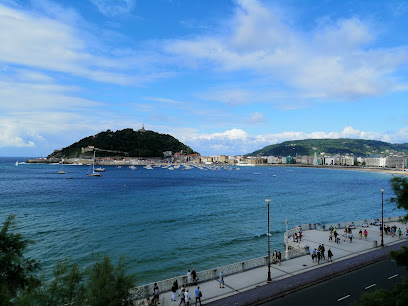
Parque de Atracciones Monte Igueldo
Discover fun and breathtaking views at Parque de Atracciones Monte Igueldo, an amusement park that combines thrills with stunning Basque scenery.
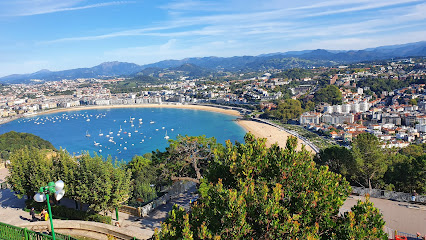
Good Shepherd of San Sebastián Cathedral
Explore the architectural beauty and spiritual serenity of the Good Shepherd of San Sebastián Cathedral, a must-see landmark in the heart of the city.

Hotel Maria Cristina, a Luxury Collection Hotel, San Sebastian
Experience timeless luxury and elegance at Hotel Maria Cristina, the premier destination in San Sebastian for discerning travelers seeking comfort and style.

San Telmo Museum
Discover the heart of Basque culture and history at San Telmo Museum in Donostia-San Sebastián, showcasing art and traditions that define the region.
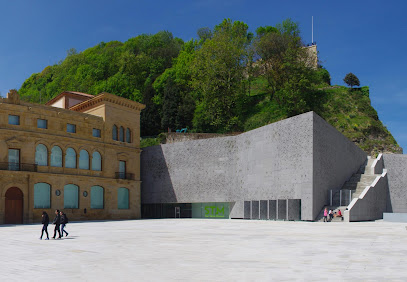
Igeldo mendiko behatokia
Discover stunning panoramic views and serene landscapes at Igeldo Mountain Lookout in San Sebastián, the perfect scenic spot for tourists.
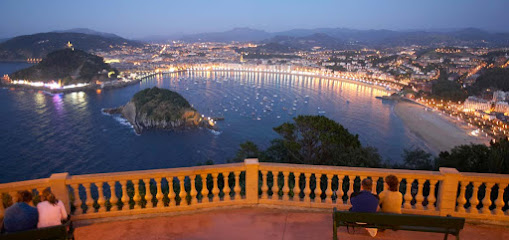
Aiete parkea
Discover the tranquil beauty of Aiete Park in Donostia-San Sebastián, a perfect escape for nature lovers and families alike.
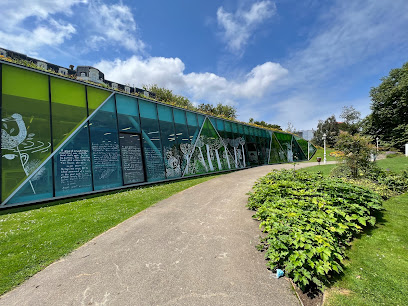
Kontxa Pasealekua
Explore the picturesque Kontxa Pasealekua in San Sebastián, where stunning ocean views and vibrant local culture await your discovery.
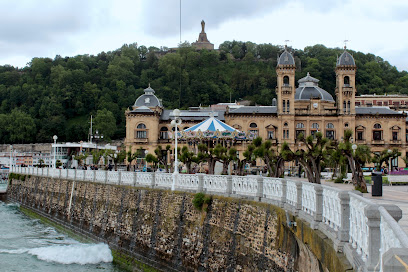
Motako Gaztelua
Explore the historic Motako Gaztelua in San Sebastián, a captivating castle offering stunning views and rich cultural heritage in the Basque Country.
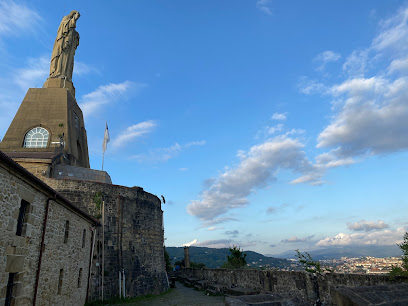
Koruko Andre Mariaren basilika
Discover the enchanting Koruko Andre Mariaren Basilika, a Gothic masterpiece in Donostia-San Sebastián, perfect for culture enthusiasts and spiritual seekers alike.
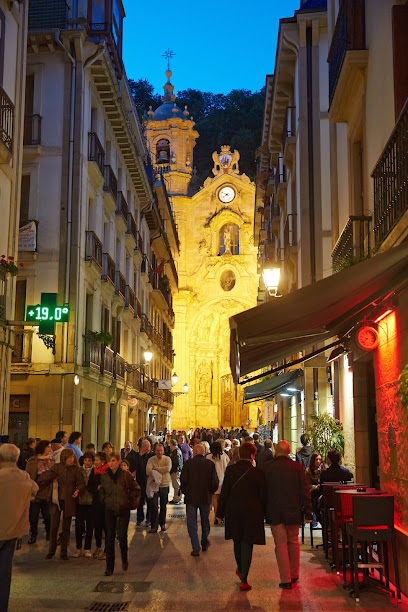
Maria Kristina Zubia
Explore the stunning María Cristina Bridge in San Sebastián, a captivating blend of history, architecture, and scenic beauty overlooking the Urumea River.
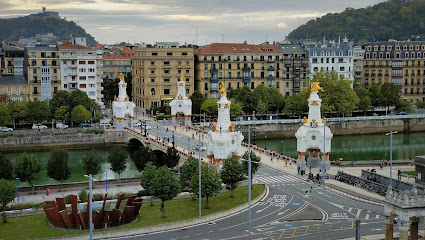
San Sebastian Turismoa
Explore the beauty of San Sebastian through its tourist information center, your gateway to local culture, cuisine, and breathtaking landscapes.
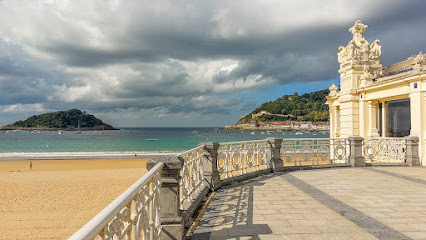
Unmissable attractions to see
Beach of La Concha
Experience the captivating charm of La Concha Beach in Gipuzkoa, where stunning landscapes and vibrant culture await every visitor.
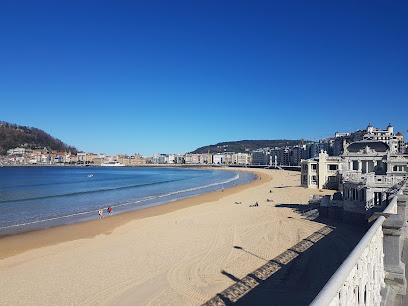
Alderdi Eder Park
Discover the serene beauty of Alderdi Eder Park in San Sebastián, a vibrant oasis with stunning views and lush landscapes perfect for relaxation.
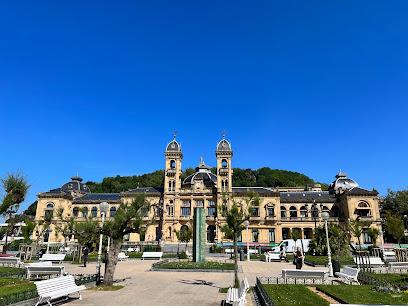
Rocher de la Vierge
Experience the stunning Rocher de la Vierge in Biarritz, a breathtaking coastal landmark with panoramic views and rich cultural history.
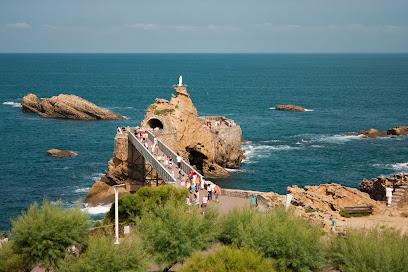
Comb of the Wind (Eduardo Chillida, 1976)
Experience breathtaking coastal views and modern art at Eduardo Chillida's iconic Comb of the Wind in Donostia-San Sebastian.
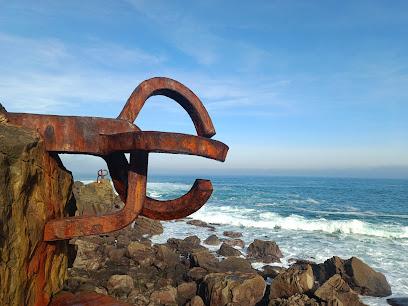
Biarritz Aquarium
Explore the wonders of the ocean at Biarritz Aquarium, a premier tourist attraction showcasing the beauty and diversity of marine life.

Aquarium
Discover the captivating world of marine life and maritime history at the Aquarium in Donostia-San Sebastián, a perfect family-friendly attraction.
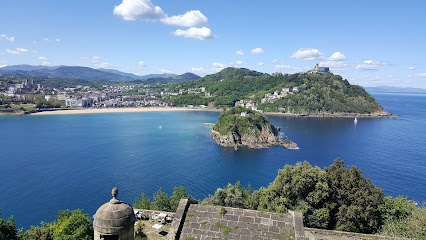
Funicular Monte Igueldo
Experience breathtaking views and serene landscapes aboard the Funicular Monte Igueldo in Donostia-San Sebastian, a must-visit for all travelers.
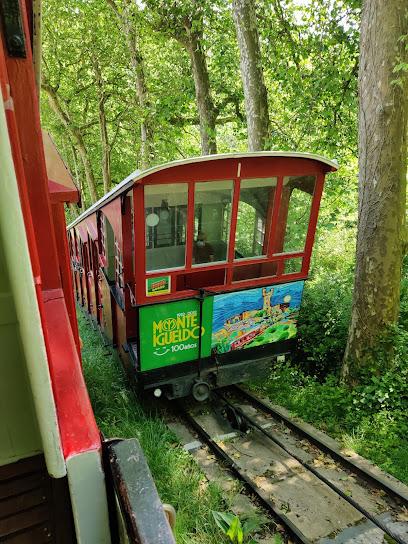
Miramar Jauregia
Discover the enchanting Miramar Palace in Donostia-San Sebastian, where history meets breathtaking views and lush gardens.
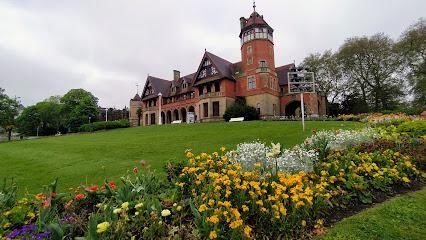
Zurriola beach
Discover the vibrant atmosphere and stunning waves at Zurriola Beach, a must-visit destination in Gipuzkoa for sun and surf enthusiasts.
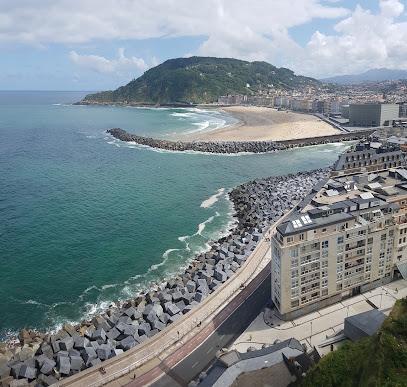
Reale Arena
Discover the excitement of Reale Arena, the iconic stadium in Donostia-San Sebastián, where sports and culture come alive in a breathtaking coastal setting.
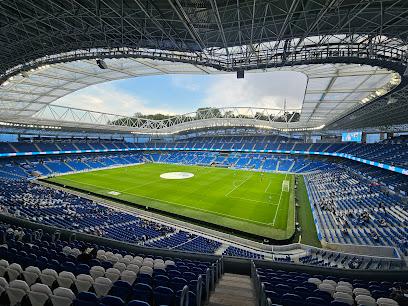
Kursaal
Discover the Kursaal, a cultural center in Donostia-San Sebastian featuring stunning architecture and a vibrant array of events and performances.
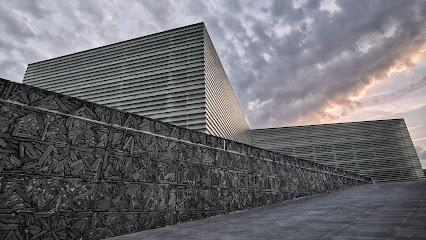
Cathédrale Sainte-Marie de Bayonne
Explore the stunning Cathédrale Sainte-Marie de Bayonne, a Gothic architectural marvel that defines the spirit and history of Bayonne.
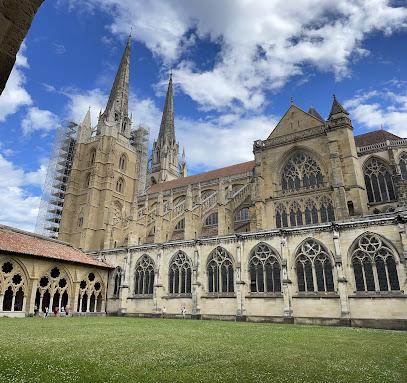
Parque de Atracciones Monte Igueldo
Explore the enchanting Monte Igueldo Amusement Park for thrilling rides and stunning views of Donostia-San Sebastian's breathtaking coastline.
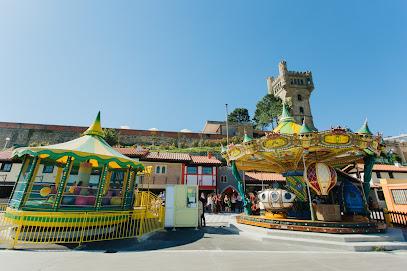
Phare de Biarritz
Explore the striking Phare de Biarritz, a historic lighthouse offering stunning ocean views and a glimpse into the rich maritime heritage of the Basque coast.

Château d'Abbadie
Discover the enchanting Château d'Abbadie in Hendaye, a stunning castle with historical significance and breathtaking ocean views.
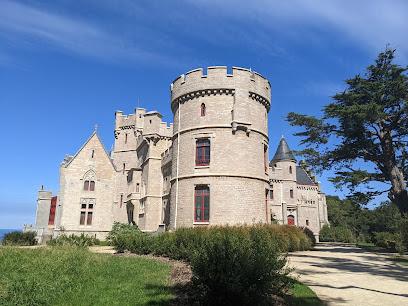
Essential places to dine
Gandarias
Discover authentic Basque cuisine at Gandarias in Donostia-San Sebastián—where tradition meets taste in every dish.
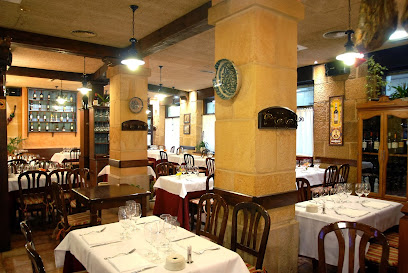
La Viña
Discover La Viña in San Sebastián – where authentic Basque flavors meet vibrant dining experiences.
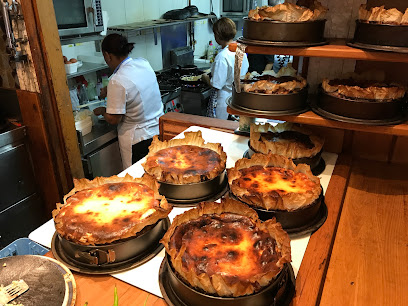
Cervecerías La Mejillonera
Discover authentic Basque flavors at Cervecerías La Mejillonera - your go-to tapas bar in San Sebastián offering delicious seafood delicacies.
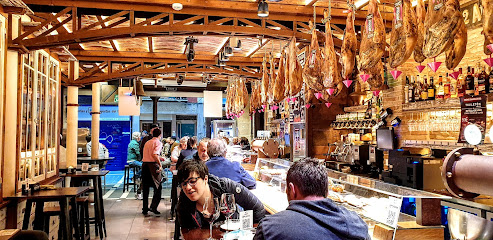
Atari Gastroleku
Discover the vibrant flavors of Basque cuisine at Atari Gastroleku, a must-visit tapas bar in Donostia-San Sebastian.
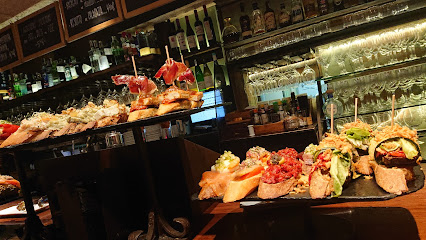
Mesón Portaletas
Experience authentic Basque cuisine at Mesón Portaletas - a must-visit tapas bar in San Sebastián offering delicious dishes and vibrant atmosphere.
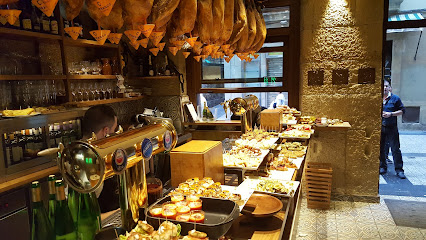
Casa Vergara
Discover Casa Vergara in Donostia-San Sebastian - where delicious grilled specialties meet warm hospitality in a charming setting.
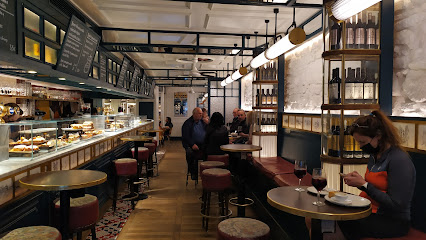
Txepetxa Taberna
Discover authentic Basque flavors at Txepetxa Taberna, a vibrant tapas bar offering delicious pintxos in the heart of Donostia-San Sebastián.
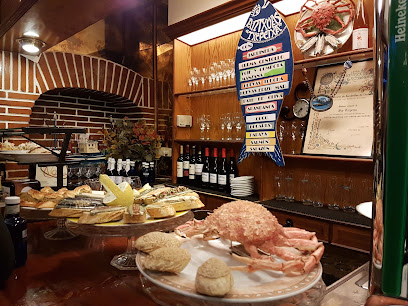
Arzak
Experience culinary artistry at Arzak in Donostia-San Sebastián – where tradition meets innovation in every exquisite dish.
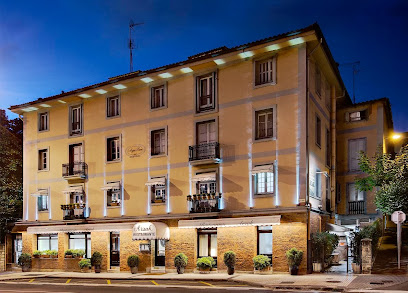
Borda Berri
Discover the vibrant flavors of Basque cuisine at Borda Berri in Donostia-San Sebastián, where traditional tapas meet modern flair.
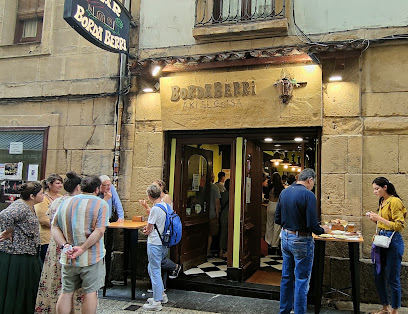
Ganbara
Experience authentic Basque cuisine at Ganbara in Donostia-San Sebastián, where traditional grilling meets modern flair.
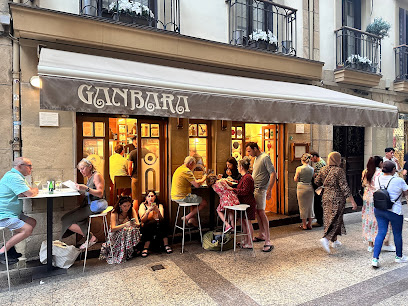
TrikuHarri Taberna Jatetxea
Discover authentic Basque flavors at TrikuHarri Taberna Jatetxea, where every grilled dish tells a story.
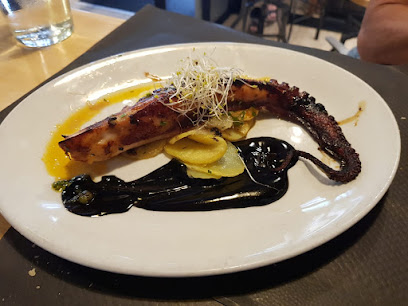
Narru Restaurant
Experience exquisite Basque cuisine at Narru Restaurant in Donostia-San Sebastián - where tradition meets innovation.
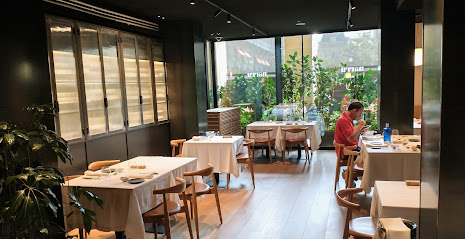
Kaskazuri Jatetxea
Experience authentic Basque flavors at Kaskazuri Jatetxea, a delightful Mediterranean restaurant in Donostia-San Sebastián's vibrant culinary scene.
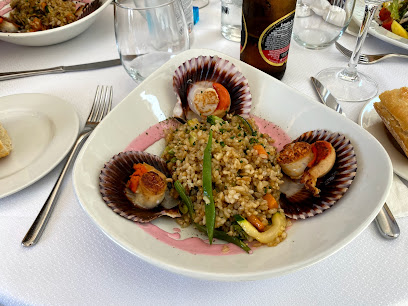
Casa Urola
Discover the exquisite flavors of Basque cuisine at Casa Urola in Donostia-San Sebastián – where tradition meets innovation.
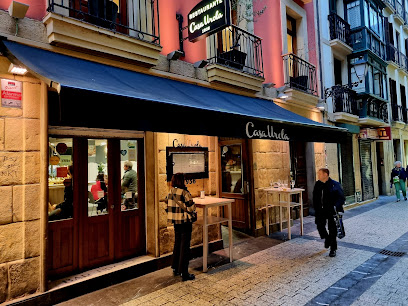
Mesón Martín
Experience authentic Basque flavors at Mesón Martín in Donostia-San Sebastián - where tradition meets culinary excellence.
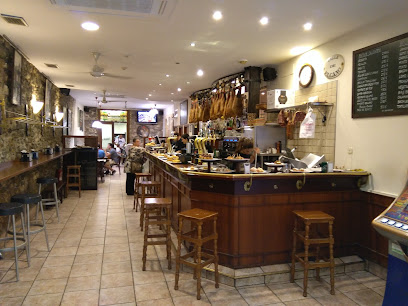
Markets, malls and hidden boutiques
Garbera Merkataritza Gunea
Discover Garbera Shopping Mall in Donostia-San Sebastian: a vibrant mix of shopping, entertainment, and local flavors awaits you.
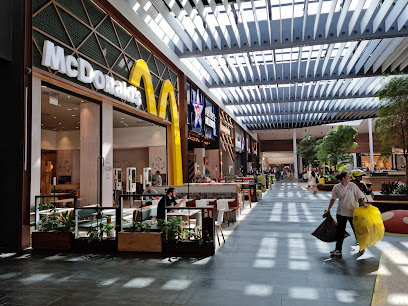
Bretxa Merkataritza Zentroa
Explore the vibrant Bretxa Merkataritza Zentroa in San Sebastián, where shopping meets Basque culture in a lively and inviting atmosphere.
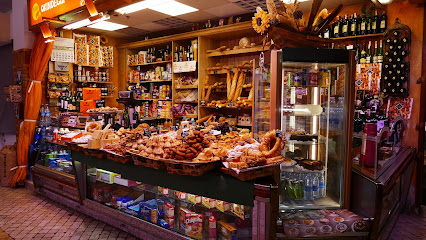
ARCCO Centro Comercial
Explore ARCCO Centro Comercial, a vibrant shopping mall in San Sebastian, offering diverse shops, delicious dining, and exciting entertainment for all.
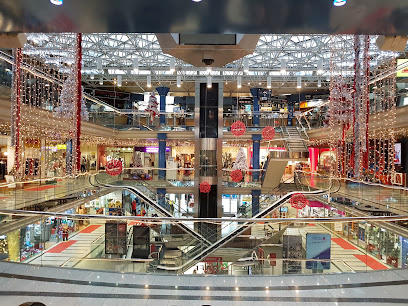
Flying Tiger Copenhagen
Explore the quirky and affordable gifts at Flying Tiger Copenhagen, a must-visit destination for unique souvenirs in Donostia-San Sebastian.
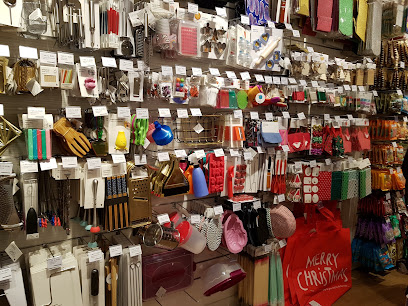
Stradivarius
Discover the latest trends in women's fashion at Stradivarius, the chic clothing store in Donostia-San Sebastian.
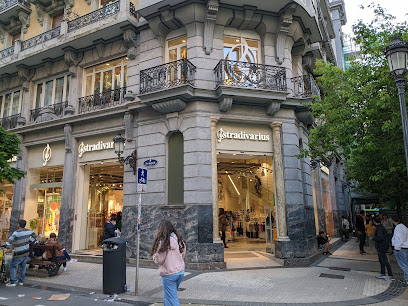
Bershka
Explore the latest fashion trends at Bershka in Donostia-San Sebastian, your go-to store for stylish clothing and accessories.
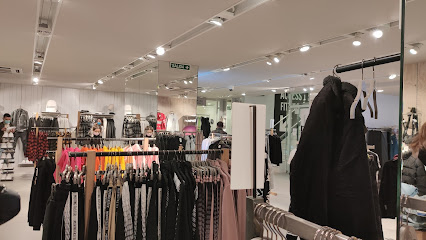
Brownie - San Sebastián
Discover the latest fashion trends at Brownie - San Sebastián, a stylish women's clothing store in the heart of Donostia.
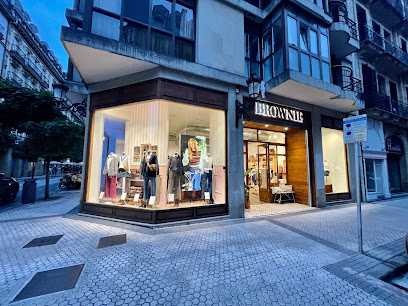
Lacoste San Sebastián
Discover stylish clothing and accessories at Lacoste San Sebastián, where fashion meets the spirit of the Basque coast.
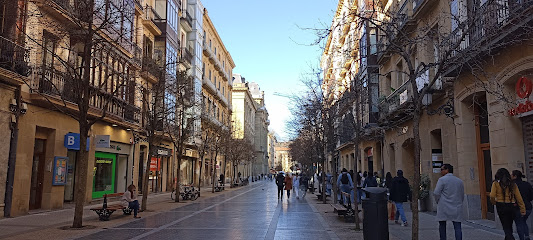
MANILA SAN SEBASTIÁN
Discover Manila San Sebastián, the ultimate destination for elegant formal wear in Donostia-San Sebastián, where style meets sophistication.

Boutique Fátima Ansola (Actualmente ANSOLA & DE OLIVEIRA)
Explore the stylish selections at Boutique Fátima Ansola in San Sebastián for a unique shopping experience that reflects Basque culture.
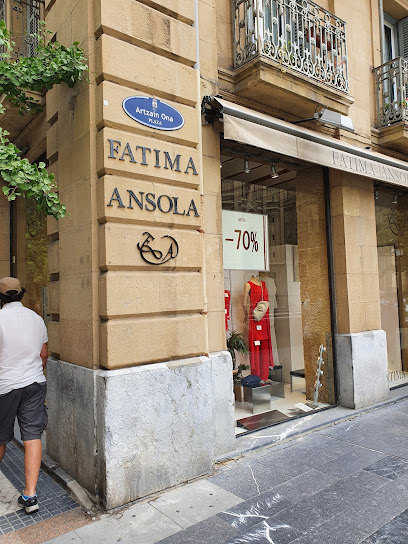
San Sebastian Duck Store
Explore the whimsical San Sebastian Duck Store, where unique gifts and local treasures await every visitor in the heart of Donostia-San Sebastian.
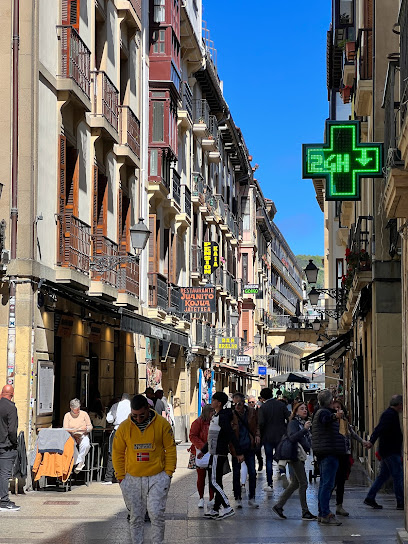
BOSS Store
Discover luxury fashion at the BOSS Store in Donostia-San Sebastian, offering a wide selection of men's and women's clothing, accessories, and exquisite perfumes.
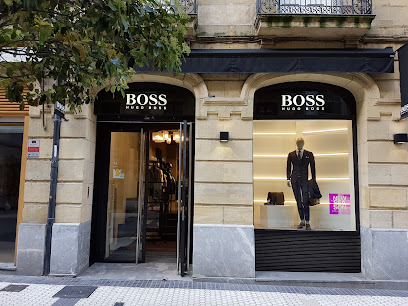
Three Elements
Explore the stylish charm of Three Elements in San Sebastián, where local fashion meets trendy apparel for an unforgettable shopping experience.
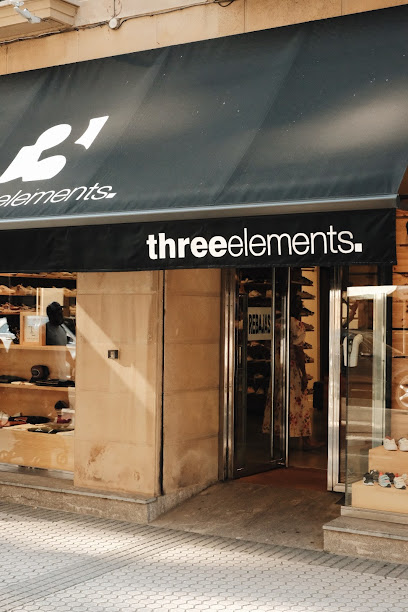
El Ganso San Sebastián
Discover El Ganso in San Sebastián for a blend of modern men's fashion and timeless elegance, all in a stylish boutique atmosphere.
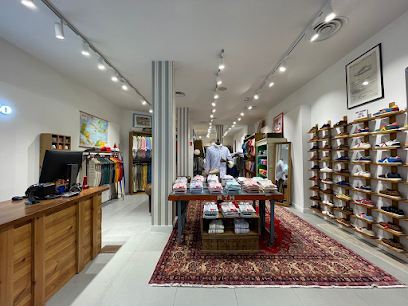
Koloreka
Explore the artistic charm of Koloreka, a unique gift shop and art gallery in Donostia-San Sebastian, featuring local craftsmanship and creativity.
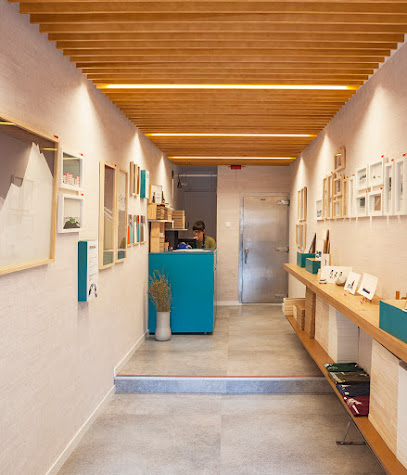
Essential bars & hidden hideouts
Bar Sport
Experience the vibrant atmosphere and delectable tapas of Bar Sport, a beloved destination in the heart of San Sebastián's culinary scene.
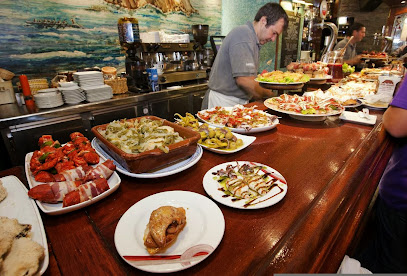
Mala Gissona Beer House Gros
Experience the best craft beers and gourmet hamburgers at Mala Gissona Beer House Gros in Donostia-San Sebastian's vibrant atmosphere.
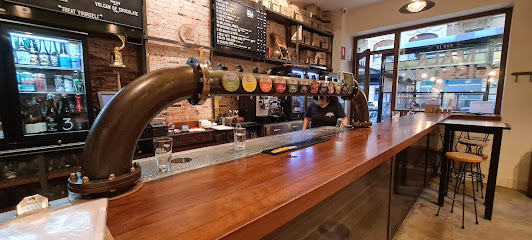
Bar Nestor
Discover the vibrant flavors of Basque cuisine at Bar Nestor, a bustling bar in the heart of San Sebastián, perfect for food lovers and travelers.
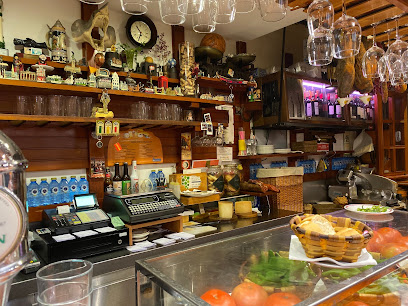
Bar Antonio
Discover the flavors of the Basque country at Bar Antonio, a vibrant bar in Donostia-San Sebastian, renowned for its delicious tapas and warm atmosphere.
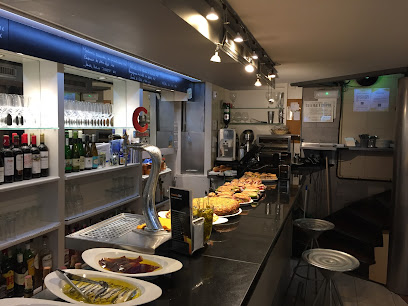
La Gintonería Donostiarra
Discover the vibrant cocktail culture at La Gintonería Donostiarra in San Sebastián, where mixology meets an inviting atmosphere.
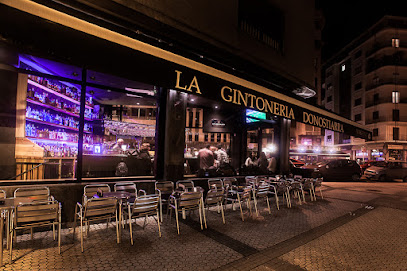
Museo Del Whisky - Donostia-San Sebastian, Gipuzkoa
Explore the fascinating world of whisky at Museo Del Whisky, a cocktail bar and museum in the heart of Donostia-San Sebastian, where every sip tells a story.
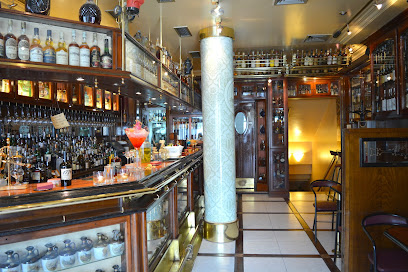
Geralds Bar
Discover Gerald's Bar, a vibrant grill bar in Donostia-San Sebastian, offering delicious grilled dishes and a lively atmosphere for an unforgettable dining experience.
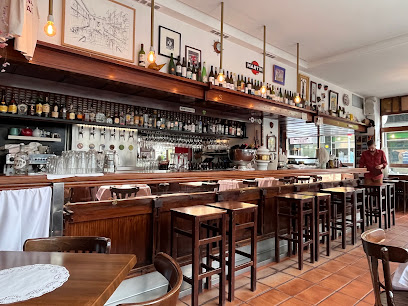
The Hole Pub
Experience the thrill of darts and exceptional drinks at The Hole Pub, a vibrant dart bar in Donostia-San Sebastian.
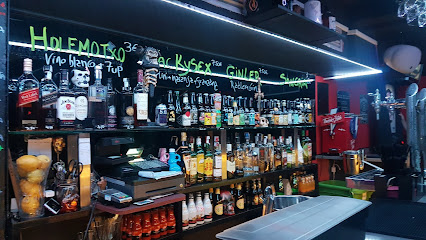
Teorema
Discover the vibrant nightlife at Teorema, a lively bar in San Sebastián, known for its cocktails, craft beers, and friendly atmosphere.
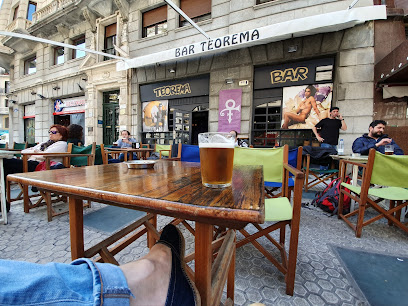
Txurrut Terraza Puba
Experience vibrant social life at Txurrut Terraza Puba in San Sebastián, where drinks and people-watching meet in the heart of Constitution Plaza.
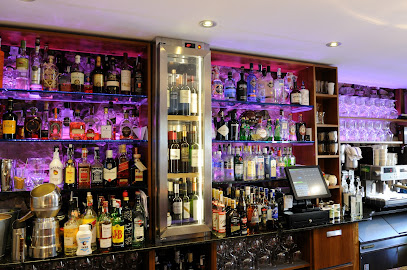
Arraun
Discover Arraun, a cocktail bar in Donostia-San Sebastian, where innovative drinks meet a cozy atmosphere for an unforgettable night out.
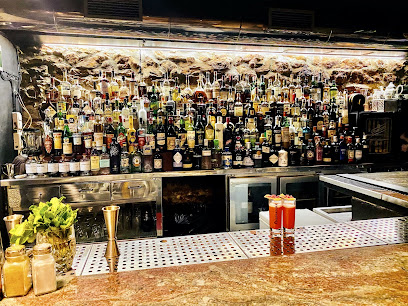
Drop - Donostia, Gipuzkoa
Dive into the vibrant nightlife at Drop in Donostia, where craft beer, cocktails, and dancing create unforgettable experiences.
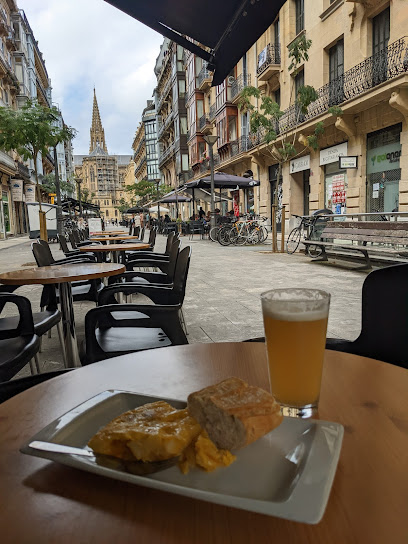
Udaberri
Experience the charm of Udaberri, a historic bar in Donostia-San Sebastian, serving traditional Basque snacks and drinks in a vintage atmosphere.
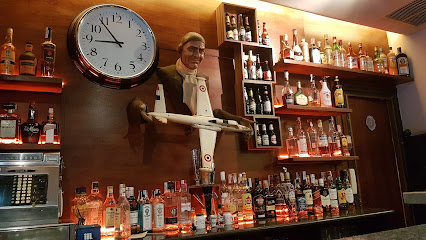
Minuto Y Medio
Experience the vibrant atmosphere of Minuto Y Medio, a lively pub in Donostia-San Sebastian, where great drinks and local culture meet.
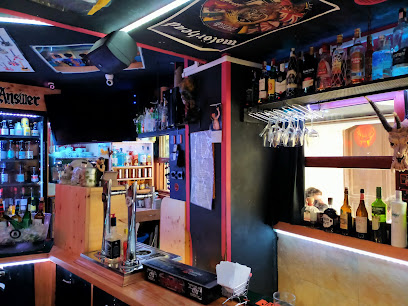
Local Phrases
-
- HelloKaixo
[ka-ee-sho] - GoodbyeAgur
[ah-goor] - YesBai
[bye] - NoEz
[ez] - Please/You're welcomeMesedez
[meh-seh-dez] - Thank youEskerrik asko
[es-ke-reek ah-sko] - Excuse me/SorryBarkatu
[bar-ka-too] - How are you?Zelan zaude?
[zeh-lan zau-deh] - Fine. And you?Ondo. Eta zu?
[on-do. eh-ta zoo?] - Do you speak English?Ingelesa hitz egiten duzu?
[in-ge-le-sa hits e-gee-ten doo-zoo?] - I don't understandEz dut ulertzen
[ez doot u-lehr-tzen]
- HelloKaixo
-
- I'd like to see the menu, pleaseMenua ikusi nahi nuke, mesedez
[men-oo-a ee-koo-see na-hee noo-ke, meh-seh-dez] - I don't eat meatEz jaten dut haragia
[ez ja-ten doot ha-ra-gee-a] - Cheers!Topa!
[toh-pa] - I would like to pay, pleaseOrdaindu nahi nuke, mesedez
[or-dai-ndu na-hee noo-ke, meh-seh-dez]
- I'd like to see the menu, pleaseMenua ikusi nahi nuke, mesedez
-
- Help!Laguntza!
[la-goon-tza] - Go away!Joan zaitez!
[jo-an zai-tes] - Call the Police!Deitu poliziari!
[de-ee-tu po-lee-see-a-ri] - Call a doctor!Deitu medikuari!
[de-ee-tu me-dee-koo-a-ri] - I'm lostNire bidea galdu dut
[ni-re bi-de-a ga-lu doot] - I'm illGaixo nago
[gai-sho na-go]
- Help!Laguntza!
-
- I'd like to buy...Erosi nahi nuke...
[eh-ro-see na-hee noo-ke...] - I'm just lookingBakarrik begiratzen
[ba-ka-reek be-gee-ra-tzen] - How much is it?Zenbat balio du?
[zen-bat ba-lee-o doo?] - That's too expensiveHorrek oso garestia da
[ho-rrek o-so ga-res-tee-a da] - Can you lower the price?Prezioa jaitsi dezakezu?
[pre-see-o-a hai-tsi de-za-ke-zu?]
- I'd like to buy...Erosi nahi nuke...
-
- What time is it?Zenbat da ordua?
[zen-bat da or-doo-a] - It's one o'clockBatetan da
[ba-te-tan da] - Half past (10)Hamarte da (10)
[ha-mar-te da (10)] - MorningGoiza
[go-ee-za] - AfternoonArratsaldea
[a-rat-sal-de-a] - EveningGaua
[ga-oo-a] - YesterdayAtzo
[at-so] - TodayGaur
[gaur] - TomorrowBihar
[bi-har] - 1Bat
[bat] - 2Bi
[bee] - 3Hiru
[hi-ru] - 4Lau
[lau] - 5Bost
[bost] - 6Sei
[sei] - 7Zazpi
[zaz-pi] - 8Zortzi
[zor-tzi] - 9Bederatzi
[be-de-ra-tzi] - 10Hamar
[ha-mar]
- What time is it?Zenbat da ordua?
-
- Where's a/the...?Non dago...
[non da-go...] - What's the address?Zer da helbidea?
[zer da hel-bi-de-a?] - Can you show me (on the map)?Erakutsi al zerbait (mapan)?
[eh-ra-koot-see al zer-by-t (ma-pan)?] - When's the next (bus)?Noiz dator hurrengoa (autobusa)?
[no-iz da-tor ur-ren-go-a (au-to-bu-sa)?] - A ticket (to ....)Tiketa bat (....ra)
[ti-ke-ta bat (....ra)]
- Where's a/the...?Non dago...
History of San Sebastián
-
San Sebastián, known as Donostia in Basque, was founded in 1180 by King Sancho VI of Navarre. Its strategic location on the Bay of Biscay made it an important military stronghold and trading port from the early days. The city's rich history is rooted in its role as a crossroads for different cultures and civilizations, from the Romans to the Moors.
-
One of the most significant events in San Sebastián's history is the Siege of 1813 during the Peninsular War. British and Portuguese forces, fighting against Napoleonic troops, laid siege to the city. After intense fighting, the city was set ablaze and nearly destroyed. The majority of its buildings were burned down, and it took years to rebuild the city from the ashes.
-
The late 19th and early 20th centuries marked the Belle Époque era for San Sebastián. The city became a popular summer retreat for Spanish and European aristocracy, including Queen María Cristina of Spain. This period saw the construction of many of the city's iconic buildings, such as the Miramar Palace and the luxurious Hotel María Cristina, which still stand as symbols of the city's opulent past.
-
San Sebastián played a significant role during the Spanish Civil War (1936-1939). Initially held by Republican forces, the city fell to Francoist troops in September 1936. The war had a profound impact on the city's social and political fabric, leading to a period of repression and hardship for its inhabitants.
-
In the latter half of the 20th century, San Sebastián became a focal point for Basque cultural revival and political activism. The city experienced a cultural renaissance, with the establishment of institutions like the Basque Culinary Center and the San Sebastián International Film Festival. This period also saw the rise of the Basque separatist movement, which had a significant impact on the region's political landscape.
-
Today, San Sebastián is a vibrant and cosmopolitan city known for its culinary excellence, stunning beaches, and rich cultural heritage. The city has earned a reputation as one of the world's great gastronomic capitals, boasting numerous Michelin-starred restaurants and a thriving pintxos (tapas) culture. Its historic old town, picturesque La Concha beach, and the annual film festival make it a must-visit destination for travelers from around the globe.
San Sebastián Essentials
-
San Sebastián is located in the Basque Country of northern Spain. The nearest international airport is San Sebastián Airport (EAS), approximately 20 kilometers away in Hondarribia. Alternatively, Bilbao Airport (BIO) is around 100 kilometers away and offers more international connections. From Bilbao, you can take a bus or a train to San Sebastián, with the journey taking about 1.5-2 hours. There is also a high-speed train (AVE) connection from major Spanish cities like Madrid and Barcelona to San Sebastián.
-
San Sebastián has an efficient public transportation system, including buses and the Euskotren light rail, which connects the city with nearby towns. Tickets can be purchased at kiosks and online. Taxis are also readily available and can be hailed on the street or booked via phone/apps. For a more local experience, consider renting a bike; the city is bike-friendly with numerous dedicated lanes. Walking is another great option as many attractions are within close proximity to each other.
-
The official currency in San Sebastián, as in the rest of Spain, is the Euro (EUR). Credit cards are widely accepted in hotels, restaurants, and shops, but it's advisable to carry some cash for smaller establishments and markets. ATMs are plentiful and generally offer fair exchange rates.
-
San Sebastián is generally a safe city for tourists. However, standard precautions should be taken, such as avoiding poorly lit areas at night and keeping an eye on personal belongings in crowded places like La Concha beach and the Old Town (Parte Vieja). Pickpocketing can occur, particularly in tourist hotspots.
-
In case of emergency, dial 112 for immediate assistance. This number connects you to police, fire, and medical services. The main hospital in San Sebastián is Hospital Universitario Donostia. Pharmacies are easily found throughout the city and can provide over-the-counter medications. It is recommended to have travel insurance that covers medical emergencies.
-
Fashion: Do dress neatly and stylishly; San Sebastián is known for its chic fashion scene. Avoid overly casual attire in upscale restaurants. Religion: Do respect local customs, especially when visiting churches. Dress modestly and avoid loud behavior. Public Transport: Do validate your ticket upon boarding buses and trains. Don't put your feet on seats or eat and drink on public transport. Greetings: Do greet people with a friendly 'Hola' or 'Kaixo' (Basque greeting). A handshake is customary for formal introductions. Eating & Drinking: Do try local pintxos (tapas) and always accept food offerings graciously. Don't skip queueing etiquette at pintxos bars; wait your turn to be served.
-
To experience San Sebastián like a local, visit the markets such as Mercado de la Bretxa, where you can buy fresh produce and regional specialties. Engage with locals who are usually friendly and willing to share insights about their culture. Don't miss the chance to walk along La Concha promenade or hike up Monte Urgull for panoramic views. For a unique experience, attend a Basque festival or a pelota (traditional Basque sport) match.
Trending Landmark in San Sebastián
-
Alderdi Eder parkea
-
Comb of the Wind (Eduardo Chillida, 1976)
-
Gipuzkoa Plaza
-
Miramar Jauregia
-
Parque de Atracciones Monte Igueldo
-
Good Shepherd of San Sebastián Cathedral
-
Hotel Maria Cristina, a Luxury Collection Hotel, San Sebastian
-
San Telmo Museum
-
Igeldo mendiko behatokia
-
Aiete parkea
-
Kontxa Pasealekua
-
Motako Gaztelua
-
Koruko Andre Mariaren basilika
-
Maria Kristina Zubia
-
San Sebastian Turismoa
Nearby Cities to San Sebastián
-
Things To Do in Pamplona
-
Things To Do in Bilbao
-
Things To Do in Santander
-
Things To Do in Lourdes
-
Things To Do in Burgos
-
Things To Do in Huesca
-
Things To Do in Bordeaux
-
Things To Do in Zaragoza
-
Things To Do in Toulouse
-
Things To Do in Lleida
-
Things To Do in Valladolid
-
Things To Do in Arinsal
-
Things To Do in El Serrat
-
Things To Do in La Massana
-
Things To Do in Ordino

















